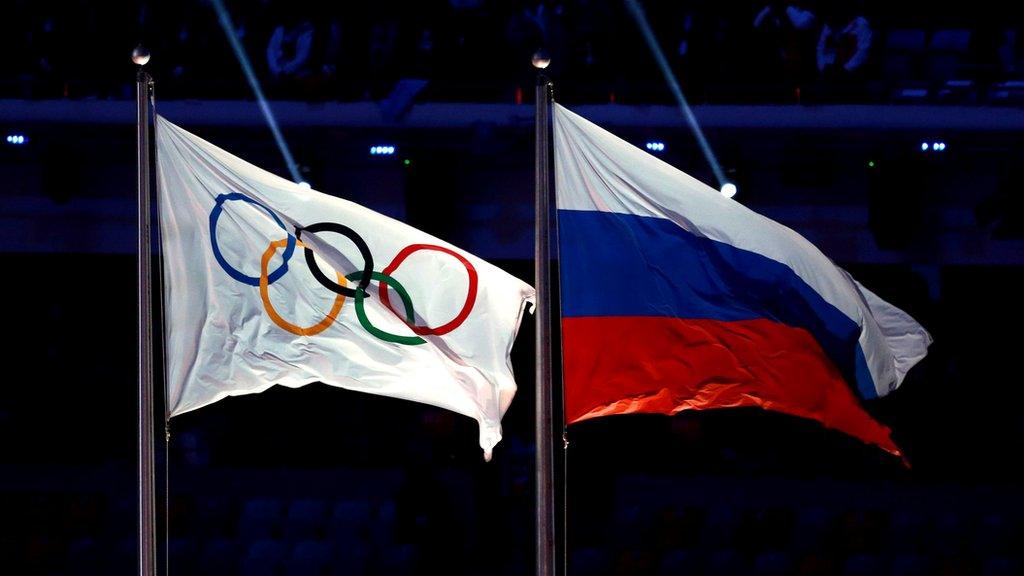Paris 2024 Olympics: Russia & Belarus athletes will not be part of opening ceremony
- Published

Russian and Belarusian athletes were widely banned from international sport following the invasion of Ukraine two years ago
Russian and Belarusian athletes will not take part in the opening ceremony at the 2024 Olympics in Paris, says the International Olympic Committee.
Athletes from both countries were banned following Russia's invasion of Ukraine in February 2022.
However, athletes from Russia and Belarus who qualify for the Games can compete as neutrals.
A decision on them being part of the closing ceremony will be taken at a later date.
The IOC said they would not be part of the opening ceremony "since they are individual athletes, but an opportunity will be provided to them to experience the event".
So far, there are 12 individual neutral athletes with a Russian passport and seven individual neutral athletes with a Belarusian passport who have qualified for Paris 2024, of the 6,000 quota places already awarded.
For this summer's Games in Paris, the conditions of their inclusion include competing without flags, emblems or anthems of their country.
Russia said on Wednesday it was "outraged" by the International Olympic Committee's conditions on its athletes, a day after Olympic chiefs barred their athletes from the opening ceremony.
"We are outraged by the unprecedented discriminatory conditions imposed by the International Olympic Committee," Foreign Ministry spokeswoman Maria Zakharova said.
Meanwhile, the IOC said Russia's plan to host a 'Friendship Games' is "a cynical attempt" by the country "to politicise sport".
Russia wants to hold the event in September this year, with a winter Games planned for 2026.
The IOC said the plan is a "blatant violation of the Olympic Charter".
The first Friendship Games were organised by the Soviet Union and eight other countries after they boycotted the 1984 Olympics in Los Angeles.
The IOC added: "The Russian government has launched a very intensive diplomatic offensive by having government delegations and ambassadors, as well as ministerial and other governmental authorities, approaching governments around the world.
"To make their purely political motivation even more obvious, they are deliberately circumventing the sports organisations in their target countries.
"This is a blatant violation of the Olympic Charter and an infringement of the various UN resolutions at the same time.
"It is a cynical attempt by the Russian Federation to politicise sport."
It added the Russian government is showing "total disrespect for the global anti-doping standards and the integrity of competitions".
The IOC also highlighted unnecessary pressures athletes could face if they are forced to participate in the Friendship Games, stating they could be at risk of being "exploited as part of a political propaganda campaign".
Last week, the World Anti-Doping Agency, external (Wada) raised concerns about unsanctioned multi-sports events at its meeting in Lausanne, Switzerland.
Wada said the Friendship Games will not take place under the protection of the World Anti-Doping Code, so could compromise the "health and fairness" of athletes.